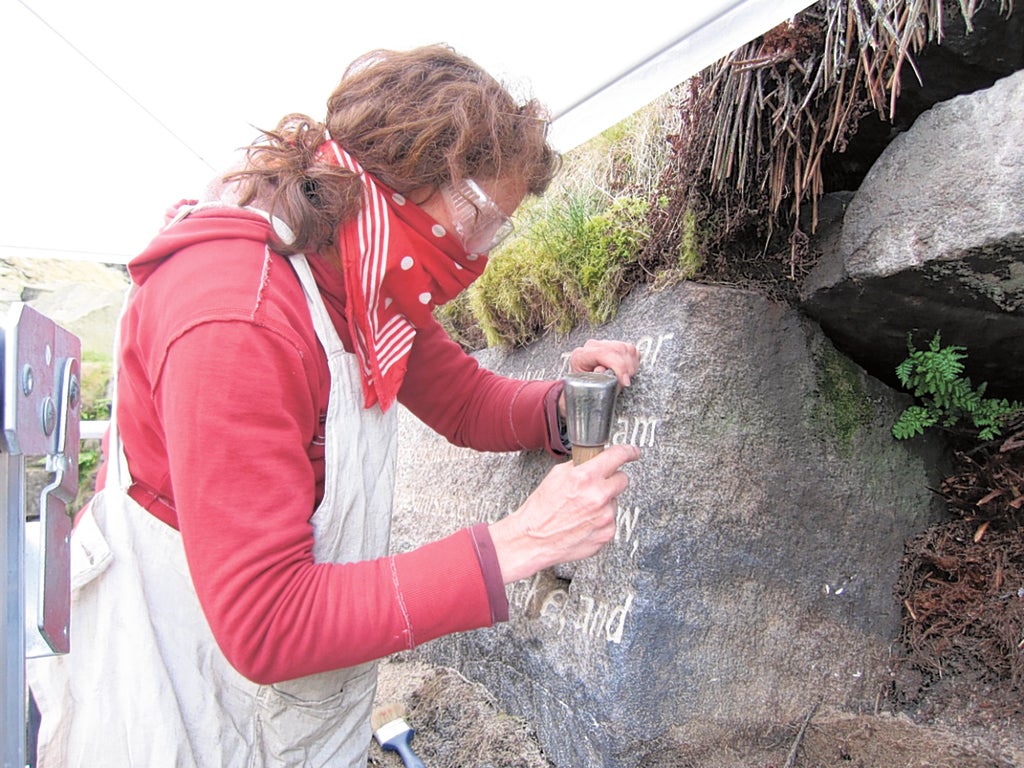Cultural Olympiad is desecrating our sacred stones, say Druids
£130,000 project to carve verse into rocks on Yorkshire moors decried as 'vandalism'

Ilkley Moor was inspiring imaginations long before it became the location for the celebrated hatless courting ritual that gave rise to Yorkshire's "national" song. Now plans to use it as a backdrop to works by one of Britain's leading modern poets are being described as promoting "vandalism" by some of those living in its shadow.
Stanza Stones, a flagship arts project involving the poet Simon Armitage and marking next year's Cultural Olympiad, has stoked opposition from groups, including local Druids, who fear it could lead to the desecration of neolithic stone sites, as well as an upsurge in litter and graffiti.
Two locations around Ilkley have been chosen as part of a national poetry trail leading from the poet's home town in Marsden and running along the Pennine Watershed before reaching the spa town. Commissioned by the Ilkley Literature Festival, with the backing of English Heritage and Natural England, leading sculptor Pip Hall will carve seven of Armitage's poems on rocks sited along the route.
But a protest group, the Guardians of Ilkley Moor, claiming 150 members, is demanding the £130,000 project be cancelled. David Hazel, a retired salesman from Bradford and a practising Druid, said he was unconvinced by claims from festival organisers that the carvings would not tempt others to leave their own – less desirable – markings on the rugged landscape.
"There is a whole ethical thing about carving on the moor. We do understand that the countryside has to change for land management purposes and for farming purposes. But this is so unnecessary," he said.
"When I go out to walk, I like to be away from it all, not have modern poetry thrust in my face. I like poetry but I like reading it in a book, not chiselled on rock."
Paul Bennett, author of The Old Stones of Elmet, said Ilkley boasted the largest concentration of ancient carvings in Britain, including rock art and cup and ring marks. He believes the artworks have been waved through without the necessary consultation.
"If you or I wanted to put something up on that moor we would have to jump through hoops," he said.
Armitage insists opponents have got the wrong end of the stick. "If I thought it was going to have any negative effect on anything historical or in the environment I wouldn't be going anywhere near it. I am a great fan of these landscapes," he told The Independent. "The interventions are so discreet and three or four of them are in places that have been brutalised by quarrying and other sorts of landscaping. We are trying to make some amends by the introduction of a bit of art in a place that has already been desecrated.
"People have been coming up to these wild places to say their prayers and express their dreams for thousands of years. I want to be part of that same dialogue of celebrating these places through language. But it is not my intention to leave some kind of footprint where people don't want it."
Subscribe to Independent Premium to bookmark this article
Want to bookmark your favourite articles and stories to read or reference later? Start your Independent Premium subscription today.

Join our commenting forum
Join thought-provoking conversations, follow other Independent readers and see their replies